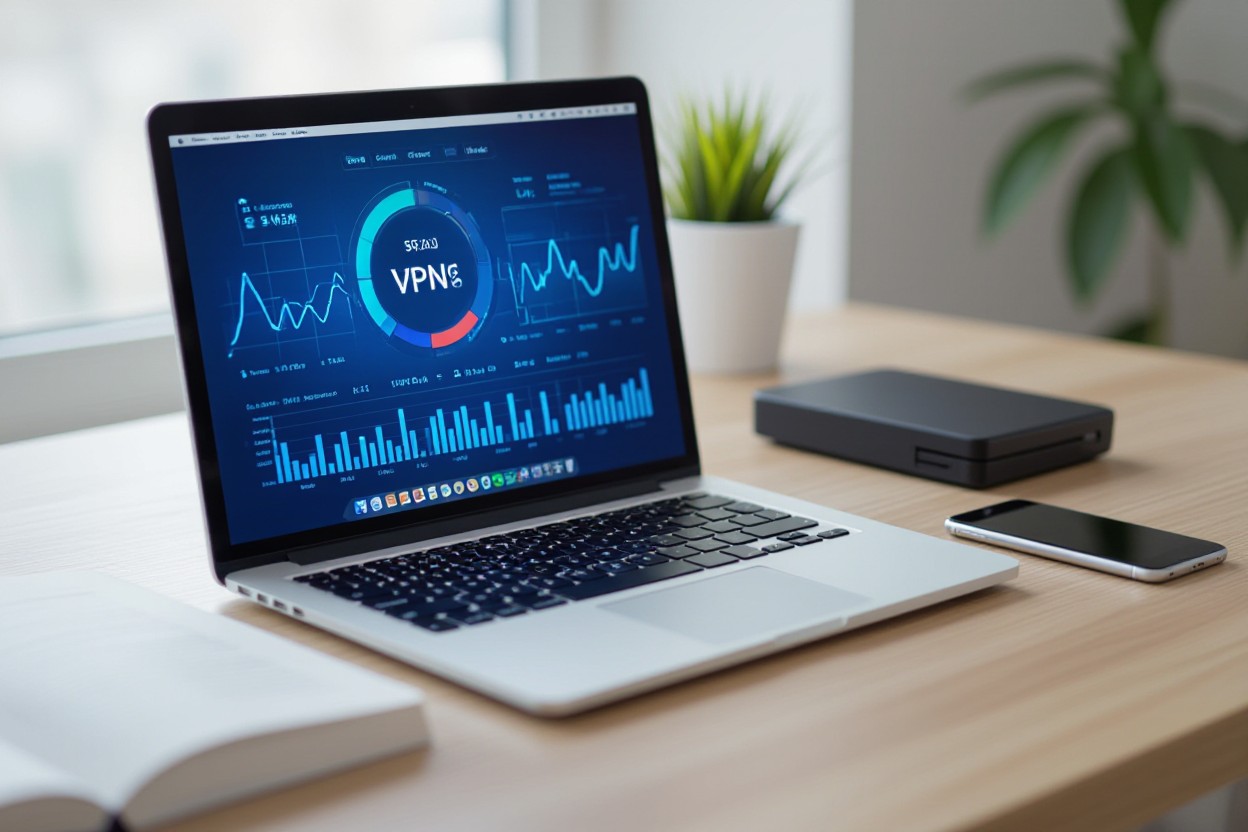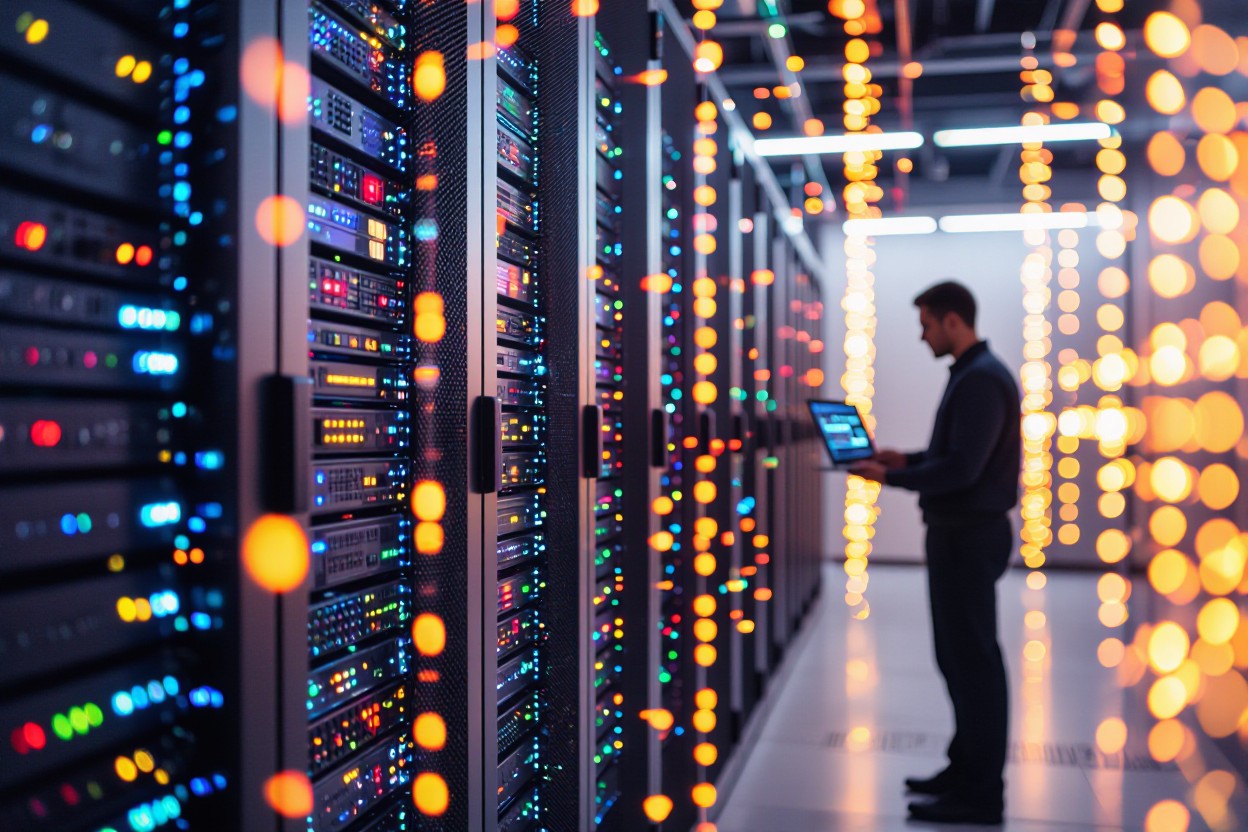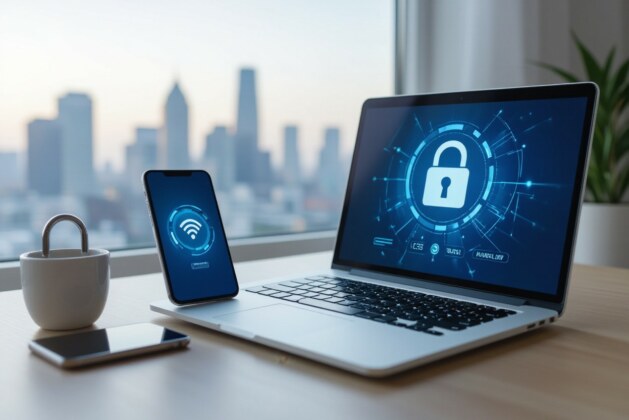This guide will help you understand how a VPN, or Virtual Private Network, acts as a powerful tool to protect your online activities. When you connect to the internet without a VPN, your data can be exposed to hackers, trackers, and even your internet service provider. By using a VPN, I can help you see how your connection becomes encrypted and anonymous, dramatically enhancing your privacy and security. Knowing how a VPN works is important for keeping your personal information safe from threats and maintaining freedom on the web.

Demystifying the VPN Algorithm: How Encryption Works
The heart of any VPN lies in its encryption algorithms, which convert your data into unreadable code during transmission. I find the blend of symmetric and asymmetric encryption fascinating—protocols like AES-256 use symmetric keys for speed, while RSA handles key exchanges securely. This combination assures that even if intercepted, your traffic remains indecipherable without the proper keys. Modern VPNs employ “perfect forward secrecy” to generate unique keys per session, so past communications can’t be decrypted even if one key is compromised later. This layered complexity makes VPNs powerful tools against cyber espionage and data theft.
The Role of Encryption in Online Security
Encryption acts as an impenetrable shield between your device and the internet, transforming plaintext into cipher text using complex algorithms. For example, AES-256, one of the strongest standards today, employs 256-bit keys—rendering brute-force attacks practically impossible. Encryption safeguards sensitive actions like banking or private messaging, ensuring data isn’t intercepted by hackers or surveillance agencies. This fundamental security feature is what turns a public Wi-Fi connection from a potential minefield into a secure channel for your data, profoundly shaping your digital privacy.
Common Protocols Explained: Which is Best?
VPN protocols dictate how your data is tunneling through the internet, balancing speed and security. Popular options include OpenVPN, IKEv2/IPSec, and WireGuard. OpenVPN is highly secure and versatile, supporting multiple encryption standards, while IKEv2/IPSec excels on mobile devices with fast reconnections during network switches. WireGuard, a newer protocol, stands out for minimal codebase and superior speeds without sacrificing robust encryption. Deciding which is best depends on whether you prioritize blazing speed, compatibility, or highest-level security for your specific use case.
Diving deeper, OpenVPN has been the industry workhorse for years, offering advanced encryption via AES-256 and excellent cross-platform support, but its complexity sometimes slows performance. IKEv2/IPSec offers a balance of good speed and strong security, especially with features like MOBIKE that aid in seamless switching between networks, making it ideal for smartphones. WireGuard, designed with simplicity and efficiency, often beats both in raw speed and battery consumption—however, as a relatively new technology, its security model and audit results are still being scrutinized by experts. Choosing among these hinges on whether you value the battle-tested reliability of OpenVPN, the mobile agility of IKEv2, or the cutting-edge speed of WireGuard.
The Digital Cloak: How VPNs Shield Your Online Identity
Using a VPN is like slipping on a digital cloak that shields your online identity from prying eyes. By encrypting your data and masking your IP address, a VPN makes tracking your online activities by hackers, advertisers, or even governments exponentially harder. This cloak protects you across public Wi-Fi hotspots, preventing threats like man-in-the-middle attacks and eavesdropping. The moment your data leaves your device, it becomes an unreadable cipher, ensuring your personal information remains just that—personal.
Protection from Surveillance and Data Harvesting
I’ve seen countless cases where advertisers and agencies gather mountains of data through unprotected internet connections. A VPN cuts off this data harvesting at its roots by routing your traffic through secure servers, making it nearly impossible for trackers to associate your online behavior with your real identity. This not only enhances your privacy but also sidesteps targeted ads and invasive profiling that follow you across websites and apps.
Overcoming Geographical Restrictions in Content Access
Streaming platforms like Netflix or Hulu often restrict content based on your location, leaving you frustrated with limited catalogs. VPNs help bypass these regional locks by reconnecting your device through servers in countries where the content is accessible, effectively fooling the platform into thinking you’re browsing locally. This simple switch expands your entertainment options and keeps your viewing experience uninterrupted wherever you are.
Diving deeper, many countries impose strict internet censorship affecting access to news, social media, and educational resources. VPNs become indispensable tools by creating encrypted tunnels that evade government firewalls, granting unrestricted access to information. For travelers or expatriates, VPNs maintain seamless access to home-country services like banking or regional sports broadcasts. Choosing VPNs optimized for streaming ensures minimal buffering and prevents detection, maintaining both speed and privacy in bypassing these digital borders.
Performance Pitfalls: Analyzing the Costs of VPN Usage
Using a VPN often means trading some speed for privacy and security. VPNs route your data through encrypted tunnels and remote servers, which can cause slower download and upload rates. Depending on server location, network congestion, and encryption strength, users may notice lag or buffering during video streaming or gaming. In intense cases, latency spikes from 20ms to over 100ms, impacting real-time applications. Evaluating VPN performance requires balancing the type of activities you do online with the inevitable slowdown that encryption and rerouting introduce.
Impact on Internet Speed and Latency
Connecting through a VPN typically reduces your internet speed by 10-30%, though this varies widely based on your ISP, server distance, and VPN protocol. Latency also increases as packets travel farther and undergo complex encryption processes. For example, I’ve observed latency jump from 15ms to 80ms when switching to a server across continents. These delays can disrupt sensitive tasks like video conferencing or competitive gaming, where milliseconds count.
Balancing Security with Practicality: What to Expect
You shouldn’t expect a VPN to be a perfect solution without trade-offs. While strong encryption offers powerful protection, it demands more processing power and network hops, which slow connections. Choosing between robust security and minimal speed loss depends on your threat model and usage patterns. Some VPN providers offer adjustable encryption levels or “split tunneling” features to help strike a better balance.
For users concerned about staying safe while maintaining smooth online experiences, understanding what a VPN can realistically deliver helps set expectations. Some business VPNs prioritize low latency and available bandwidth, optimized by protocol choices like WireGuard or IKEv2. Personal VPNs also differ widely, with top-tier services minimizing speed loss to as little as 5-10%. Experimenting with server locations and VPN settings can help you find the right compromise between privacy protections and practical usability.

Choosing the Right VPN: Key Features and Evaluation
Evaluating a VPN requires scrutiny of several key features to guarantee robust privacy and performance. These include encryption strength, connection speed, device compatibility, and a strict no-logs policy. Additional factors like the availability of kill switches and ease of use also play a role. Here’s a detailed list to guide your decision:
- Encryption Protocols: Look for AES-256 and secure protocols like OpenVPN or WireGuard.
- No-Logs Policy: The provider should have a verified or audited strict no-logs stance.
- Server Locations: Wide geographical coverage enhances access and speed.
- Connection Speed: Minimal speed drops maintain high-quality streaming and browsing.
- Kill Switch: Automatically cuts off the internet if the VPN drops, preventing data leaks.
- Customer Support: 24/7 responsive support ensures help is available when needed.
- Compatibility: Support for multiple devices and simultaneous connections.
Knowing these features helps you choose a VPN that not only fits your privacy needs but also provides a smooth, secure online experience.
Essential Elements: Logging Policies, Server Locations, and Customer Support
Logging policies define how much user data a VPN keeps; providers with strict no-logs policies offer stronger privacy assurances. Server locations affect both your connection speed and access to geo-restricted content—more options generally mean better flexibility. Additionally, responsive customer support matters, especially if technical issues arise or setup assistance is needed. Providers like ExpressVPN and NordVPN have built reputations on transparent policies, extensive networks, and reliable support that few can match.
Red Flags: Identifying Untrustworthy Providers
Avoid VPNs that offer free services without transparent funding models since these often monetize by selling user data. Be wary of providers lacking clear privacy policies or with histories of data breaches. Poor encryption standards, frequent connection drops without a kill switch, or vague server details also signal risks. Knowing these red flags protects you from inadvertently exposing your data to malicious actors or surveillance.
Providers that hide their ownership, have no verifiable audit records, or lack third-party security assessments fall under suspicion. For example, some free VPNs have been caught injecting ads, redirecting traffic, or even selling bandwidth. Staying informed about such practices helps you steer clear, securing your browsing from potential exploitation. Always cross-check recent user reviews and independent security audits before finalizing your choice.

The Future of VPNs: Evolving Technology and Regulations
Trends in Online Privacy and Security
Online privacy trends are rapidly shifting as governments enact stricter data protection laws like GDPR and CCPA, pushing VPN providers to adapt their policies. I’ve observed an increase in multi-protocol VPNs that offer enhanced encryption methods to combat evolving cyber threats. Users now demand not only anonymity but also transparency, driving VPNs towards no-logs policies and independent audits. As ransomware and data breaches surge, embedding AI-based threat detection within VPN services becomes a growing expectation, making the privacy landscape more dynamic and protective than before.
The VPN Landscape in an Increasingly Digital World
The surge in remote work and digital services has expanded the VPN market dramatically, with projections showing a 15% annual growth through 2027. I’ve noticed that corporate and personal VPN usage are converging as more companies require secure remote access, prompting providers to develop scalable solutions with seamless cross-device compatibility. Additionally, expansions into IoT security are inevitable, considering the vulnerability of connected devices. This shift signals that VPNs will do more than mask IP addresses; they’ll become integrated components of comprehensive cybersecurity frameworks.
Diving deeper, enterprises now integrate VPNs within zero-trust architectures, ensuring user verification at each step rather than relying solely on perimeter defenses. The proliferation of 5G networks also alters VPN utility—while faster speeds reduce some latency issues, they also increase attack surfaces, demanding smarter encryption and real-time monitoring. Consumer-grade VPNs have improved mobile app support, reflecting mobile’s growing dominance in internet access. All these developments make the VPN landscape not just larger, but fundamentally more sophisticated and aligned with broader digital security strategies.
To wrap up
Summing up, I believe a VPN is an important tool for protecting your online privacy by creating a secure, encrypted connection between your device and the internet. It shields your data from hackers, hides your IP address, and allows you to access content safely and privately. By understanding how a virtual private network operates, you can take control of your digital footprint and confidently browse the web without worry. Using a VPN is a practical step toward maintaining your security in an increasingly connected world.





Leave a comment